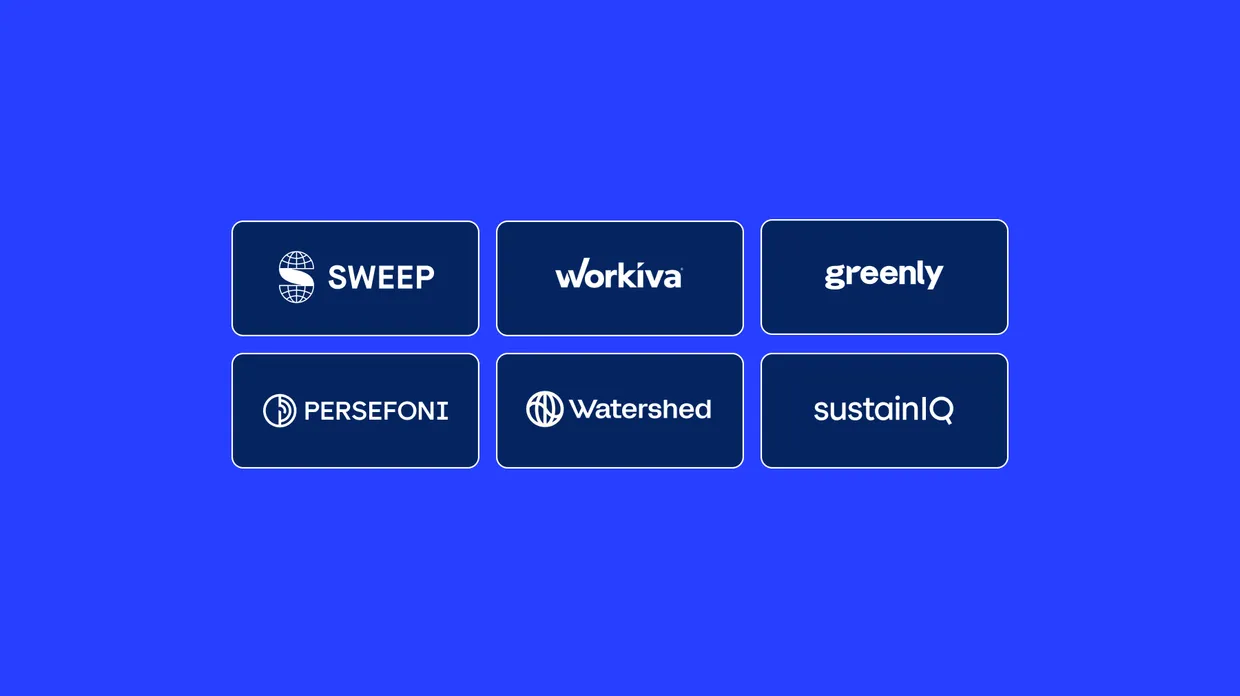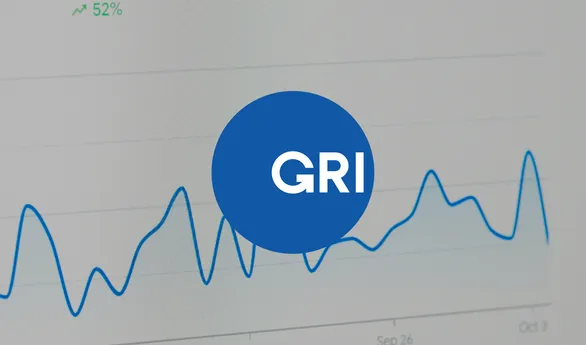Sustainability has become a critical focus for organizations of all sizes. As governments introduce stricter regulations and consumers demand greater transparency, companies must develop sustainability strategies that integrate social responsibility and environmental stewardship.
Implementing effective sustainability management software can provide vital support for business leaders in achieving compliance and driving real change. By leveraging advanced tools to monitor performance data, manage emissions, and align with science-based targets, companies are better positioned to navigate the challenges and opportunities of the low-carbon economy through comprehensive ESG and sustainability reporting.
This article will explore the importance of sustainability software in 2024 and highlight the top solutions for companies looking to elevate their sustainability efforts.
What is sustainability software?
Sustainability software refers to specialized digital platforms designed to help businesses manage, measure, and report their environmental, social, and governance (ESG) performance. Sustainability reporting software, in particular, plays a vital role in improving transparency, enabling companies to track carbon emissions, manage supply chain risks, and assess the impact of their sustainability performance across the value chain.
By offering insights into everything from greenhouse gas emissions to resource consumption, sustainability software empowers businesses to develop more effective strategies to reduce their environmental footprint.
Whether through carbon accounting, ESG reporting, or decarbonization planning, these solutions help organizations integrate sustainability into their day-to-day operations while ensuring compliance with the latest regulatory standards.
What are the common sustainability data challenges?
Businesses today face a range of challenges when it comes to managing sustainability data, which can hinder their ability to effectively implement sustainability programs. These challenges often include:
Data fragmentation: Many organizations struggle to consolidate sustainability data, which often resides in multiple, disconnected systems. Without a centralized platform, it’s difficult to achieve a holistic view of ESG performance.
Inconsistent metrics: Measuring performance data across the value chain requires standardized metrics. Yet, many companies lack consistent methodologies for tracking sustainability metrics like carbon emissions, energy consumption, or waste management.
Limited visibility into the supply chain: For many companies, understanding the environmental and social impact of their supply chain is one of the most significant hurdles. Lack of visibility into supplier practices complicates efforts to measure Scope 3 emissions and engage in decarbonization initiatives.
Regulatory complexity: Navigating the web of global ESG regulations can be challenging, especially for businesses with multinational operations. Managing compliance across different jurisdictions and sustainability frameworks is a resource-intensive process.
By addressing these challenges, sustainability software tools help organizations take control of their sustainability data and implement better decision-making processes.
What are the business benefits of sustainability management software?
Investing in sustainability management software provides a host of business benefits, particularly as companies prioritize achieving compliance with climate regulations and improving their sustainability performance to meet science-based targets. Here are some key advantages:
Streamlined reporting
Sustainability management software simplifies the reporting process by automating data collection and aligning performance metrics with recognized standards, such as the Global Reporting Initiative (GRI), Task Force on Climate-related Financial Disclosures (TCFD), and the Science-Based Targets initiative (SBTi). This helps businesses demonstrate compliance and transparency in their sustainability efforts.
Operational efficiency
By providing real-time visibility into key performance indicators (KPIs), sustainability software enables companies to identify inefficiencies in energy usage, waste management, and supply chain operations. This improves decision-making and often leads to reduced operational costs over time.
Risk mitigation
Managing ESG data is crucial for mitigating risks related to climate change, resource scarcity, and evolving regulations. With a clearer understanding of these risks, businesses can implement more resilient sustainability programs that safeguard their long-term viability.
Enhanced stakeholder trust
Sustainability software helps companies demonstrate their commitment to responsible business practices. By offering transparent insights into their environmental and social impact, businesses can build stronger relationships with investors, customers, and regulators.
Differentiation through sustainability performance
Organizations that leverage sustainability management software to drive decarbonization and meet regulatory requirements are better positioned to differentiate themselves in the marketplace. As sustainability becomes a competitive advantage, businesses that invest in ESG software can access new market opportunities.
Carbon accounting software vs ESG software
When it comes to sustainability management, there are two main categories of software: carbon accounting software and ESG reporting software. Both types of software have unique strengths and can play a critical role in sustainability programs. Here’s a comparison:
Carbon accounting software: This type of software focuses primarily on tracking and reporting greenhouse gas emissions. It helps businesses measure emissions across different scopes (Scope 1, 2, and 3) and develop decarbonization strategies. Carbon accounting platforms are especially useful for companies that have set ambitious climate goals and are looking to reduce their environmental impact in line with science-based targets.
ESG software: ESG software goes beyond emissions reporting to provide a more comprehensive view of a company’s environmental, social, and governance performance. It covers a wide range of factors, including diversity and inclusion, labor practices, community engagement, and governance structures. ESG software is essential for businesses that need to report on a broader set of sustainability criteria and achieve compliance with ESG frameworks like the CSRD and SFDR.
For many businesses, a combination of carbon accounting and ESG software is necessary to achieve their sustainability goals. Each type of software brings valuable capabilities to the table, helping organizations navigate the complexities of sustainability reporting and performance management.
Top sustainability software in 2025
As the demand for sustainability solutions grows, several leading platforms have emerged as frontrunners in helping businesses manage their ESG performance through advanced reporting software. Here are some of the top sustainability software solutions in 2025:
Sweep
Sweep is a comprehensive platform designed to simplify the collection, management, and reporting of ESG data. With AI-powered tools, Sweep supports companies in tracking corporate emissions and supply chain compliance. It also provides customizable surveys for accurate data collection, ensuring compliance with frameworks like the CSRD and SFDR. Sweep is ideal for businesses of all sizes that seek to streamline their carbon and ESG data reporting efforts.
Workiva
Workiva is a cloud-based sustainability management platform known for its collaborative tools and audit trail capabilities. The platform simplifies ESG reporting across a variety of formats, from financial reports to climate disclosures. Workiva is best suited for accounting, finance, sustainability, and risk professionals who need to produce detailed, compliant ESG reports.
Greenly
Greenly specializes in helping companies measure and reduce their CO2 emissions. Its centralized platform integrates data from physical and monetary flows to provide real-time monitoring and target setting. Greenly is especially beneficial for CEOs, boards, and ESG managers seeking to define clear decarbonization trajectories and engage their teams in sustainability efforts.
Persefoni
Persefoni is an AI-powered sustainability and carbon accounting platform. It helps businesses track their carbon footprint, create decarbonization plans, and comply with emissions reporting standards. Persefoni is ideal for companies in the investment community and private markets that require sophisticated tools for managing regulatory and investor reporting.
Watershed
Watershed is a platform focused on helping businesses reduce their carbon footprint and align with global climate goals. It offers detailed insights into emissions data and supports companies in setting science-based targets. Watershed’s tools for emissions reduction planning and regulatory compliance make it a strong choice for organizations committed to deep decarbonization.
SustainIQ
SustainIQ helps businesses centralize their sustainability and ESG data for real-time reporting. The platform offers comprehensive analysis across a variety of ESG factors, from waste management to biodiversity. SustainIQ’s real-time automation and reporting features make it a practical solution for businesses aiming to streamline their sustainability data management.
What to look for in a sustainability software provider
When choosing a sustainability software provider, there are several factors to consider to ensure you select the right solution to help organisations manage their sustainable transformation and emissions data effectively:
Scalability: The software should be flexible enough to grow with your business and accommodate increasing volumes of data as your sustainability initiatives expand.
Compliance capabilities: Look for software that supports compliance with major ESG frameworks, such as the GRI, TCFD, CSRD, and SFDR. This ensures your business can stay ahead of regulatory changes and reporting requirements.
Customization: Every organization has unique sustainability goals. Choose software that offers customizable features to tailor data collection, reporting, and analysis to your specific needs.
User-friendly interface: Ensure the platform is easy to use for all team members, from sustainability managers to finance and operations professionals. An intuitive user interface can save time and improve efficiency across departments.
Support and training: Opt for a provider that offers strong customer support, onboarding, and training resources. This will help your team make the most of the software and ensure successful implementation. It will also lead to smoother ESG and sustainability reporting.
A smoother sustainability journey
Sustainability software plays a critical role in helping organizations manage their environmental and social impacts, achieve compliance with regulations, and drive business performance. With a wide range of solutions available, from carbon accounting platforms to comprehensive ESG management tools, businesses can find the right platform to meet their unique sustainability goals in 2025.
By investing in the right sustainability software, companies can enhance their operational efficiency, reduce their greenhouse gas emissions, and play a leading role in the transition to a low-carbon economy.




